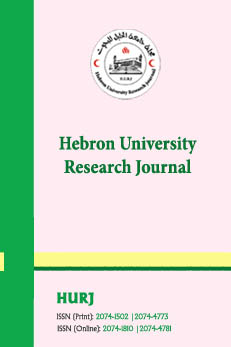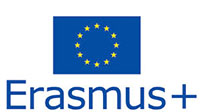Early Childhood Education
Course Description
31745 Research Design and Methods in Early Childhood Education
This course provides an extensive understanding of conducting distinguished applied research in the field of early childhood education (ECE) using quantitative, qualitative, or mixed research methods. The course focuses on the different skills and stages of conducting educational research, especially title selection, formulation of research questions/hypotheses, literature review, adherence to ethical standards, data collection, documentation, citation, analysis and interpretation, and formulation of concluding observations, which enables the student to write distinguished applied research reports and articles. The course also focuses on critical analysis of articles and research reports in international journals that use these methods to study key issues in early childhood education. The student will receive training in several practical written assignments including a brief critical analysis of research studies on early childhood education issues and a proposal to conduct research in an area of interest to the student. By preparing this proposal, students will practice applying all the skills and stages of writing educational studies and sharing them with their colleagues by submitting written and oral presentations of their research proposals.
31743 Pedagogy of Early Childhood Education 1 (Kindergarten)
This course focuses on developing various dynamic and interactive educational techniques, strategies and methods suitable for working with children in the age group 4-5 years (KG1, KG2). The course discusses basic and important beliefs or principles in the field of early childhood education, in addition to the modern theoretical aspects of teaching and learning in kindergarten. It integrates students into practical/field activities represented in observation, planning, preparing activities, participating in and leading teaching/learning sessions/activities, playing roles, simulation, and evaluating development and progress of children at that stage. The course seeks to develop students' critical understanding skills and develop their knowledge and educational experiences for local and international experiences in the field of early childhood education. The course also focuses on developing teamwork skills due to their importance in building a cooperative and supportive professional relationship and creating a friendly work environment.
31744 Pedagogy of Early Childhood Education 2: Lower Basic School (Classes 1-4)
This course focuses on the use of modern teaching techniques, strategies, and methods appropriate to the Palestinian context to teach children aged 6-10 years (lower basic school grades 1-4). The course carefully analyzes the core principles of quality education at the lower primary (basic) stage, the experiences and theoretical frameworks for teaching and learning, particularly Arabic and English languages, mathematics, science, and the techniques of integrating other components into those topics. The course also develops students’ educational abilities in teaching at this stage and involves them in practical/field research activities such as observation, planning, preparing activities, directing teaching/learning activities/sessions, role-playing, simulation, and evaluating the development and progress of children enrolled in grades 1-4. The course promotes teamwork among teachers to build a professional relationship based on cooperation and support and to create a friendly work environment to control education in a way that suits the abilities, interests and lives of children.
31746 Managing the Learning Environment
The course aims to increase students' understanding of the educational environmental standards appropriate to early childhood education, and their physical, psychological and social components. The course also examines the mechanisms of planning, organizing, using and analyzing human and non-human resources to reveal methods and techniques that help build a supportive learning environment that meets the needs of students in early childhood. It also enables an understanding of the principles, policies and practices needed to create a productive learning environment that promotes equality in the classroom through inclusive education. The main focal point of this course is to achieve a full understanding of the current Palestinian school environment and how teachers can make the most of the available resources in education
31747 Adapting Instruction for Students with Special Needs
This course focuses on the main theoretical and practical frameworks on recent trends in educating children with special needs in the context of integrating them into regular classes. It sheds light on how to design educational programs and develop the educational environment and teaching methods to meet the developmental and educational needs of this group. It also addresses issues related to global experiences of inclusive education to integrate children with special needs into a safe and motivating learning environment. The course is also concerned with observing and analyzing how these children are integrated into the classrooms and inclusive learning activities.
31748 Parental Involvement in Early Childhood Education
The course focuses on community partnership and cooperation between parents and kindergarten teachers and the role of parental involvement in improving the early childhood education process. The course also focuses on the importance of that partnership/relationship in identifying and analyzing areas of cooperation and the best ways to achieve that partnership. The course addresses the needs and requirements necessary to build a successful partnership. Potential challenges and obstacles and techniques of dealing with them in creative ways are also discussed. Students are expected to review, analyze, understand and benefit from the literature and experience in the field of planning and implementation and to maintain that collaborative partnership in their work. The course also engages students in practical experiences, including the analysis of the socio-economic and socio-cultural psychology as well as the social habits in utilizing available human and non-human resources. Students are expected to engage in practical/ experimental and reflective inquiries through field research to consolidate their understanding, skills and willingness to benefit from working with parents
31749 Mental Health Issues in Early Childhood Education
This course deals with important mental health issues related to the development and learning of children. Students are trained on how to predict and use the skills of observing any abnormal psychological and behavioral symptoms among children; they are also trained on how to treat, solve and prevent the exacerbation of these symptoms. Students are also trained on how to prepare surveys and discuss literature related to children's psychology and safety. The course engages students in observing and documenting children's behavior and sharing their experiences with their colleagues. The course also aims to develop students' skills and strategies to cooperate with parents and specialists, maintain confidentiality, and adopt a supportive and appropriate kindergarten environment for better normal and healthy psychological development of children. The course also addresses real-life situations and psychological problems common among Palestinian children living in conditions of conflict, protracted crises, stress and pain, with a focus on general issues such as personality traits, emotional state, mental health problems, communication and behavioral skills. The course discusses the preparation and implementation of intervention programs that help students to overcome conflict situations
31742 Current Issues in Early Childhood Education
This course provides a comprehensive overview of contemporary international trends, issues, methods, and strategies related to early childhood education. The course deals with the importance and advantages of using some of these issues and modern methods in educating Palestinian children. Some of these issues are related to service delivery to children, quality assurance of programs/standards, teaching methods, assessment and supervision, policies (laws and regulations), attitudes and values, and the role of professionals in meeting the needs and requirements of education for children and the required facilities. It includes an analysis of the assumptions, beliefs and values that require child care and education as well as parents’ suggestions
31741 Leadership in Early Childhood Education
The course aims to enhance awareness of local and international policies in the provision of early childhood education services. The course explores theories and research for effective policy and practice leadership. The course also enhances students' knowledge, skills and concepts in leadership roles. The course focuses on children as unique and valuable individuals. The course aims to develop the capabilities of social workers and advocates for children who wish to change the ways of caring for and educating children, including defining and clarifying the vision, ensuring mutual understanding, meanings and goals, effective communication, encouraging thinking, supervision and evaluation practices, enhancing a sense of ownership and responsibility, building a learning community and a teamwork culture. Participants will study policy-making processes and procedures that affect children, their families, and their communities in Palestine
31750 Planning and Designing Curricula for Early Childhood Education
This course seeks to develop the process and skills of evaluating, modifying, planning, designing and developing early childhood education curricula based on various international and local educational standards and experiences. The course specifically addresses the areas of comprehensive development of children's personality and development by focusing on improving language, reading, writing and arithmetic skills, science and technology in the early stages in harmony with the philosophy of early childhood education and the lower primary stages of education (grades 1-4). The course provides an opportunity to benefit from educational principles and standards to analyze, evaluate, and enhance the education curricula currently in use. The course focuses on the practical aspect so that students participate in real educational experiences that emphasize the holistic and integrated curriculum
31740 Environmental Education
The course focuses on exploring the role of education/school in protecting the environment in light of development and modernity. The course addresses fundamental environmental issues (knowledge, skills, and behaviors) that connect children to the world around them: the natural/built and social environments. It addresses some of the serious challenges/problems facing the environment resulting from human development and behavior at the cognitive level (learning about: what, why and effects). The course seeks to develop eco-friendly values and behaviors. In addition, it inculcates and develops positive values and behaviors towards environmental protection using education (Learning for the Environment: Awareness, Participation, and Responsibility). The course also increases the students' knowledge and awareness of how children can participate in improving and preserving the surrounding environment by giving examples
31739 Outdoor Education: Experiential and Explorative Learning
This course seeks to develop students' theoretical and practical understanding of effective and safe learning through experimentation, exploration, and development of their experiences to help children understand the relationship between humans and the environment, as well as how to support this relationship (the environment as a primary source of learning). Students are trained to apply the principles, skills and strategies necessary to stimulate and encourage children's interests in learning through experimentation and exploration to enhance their commitment and responsibilities towards sustainable development. The course includes engaging students in evaluating and reflecting on international and local experiences of learning through experimentation and exploration, which in turn trains students to plan, organize, present and evaluate lessons and external activities that engage children in interaction and exploration of the surrounding environment. To achieve this, students will learn about external resources available in their local communities





